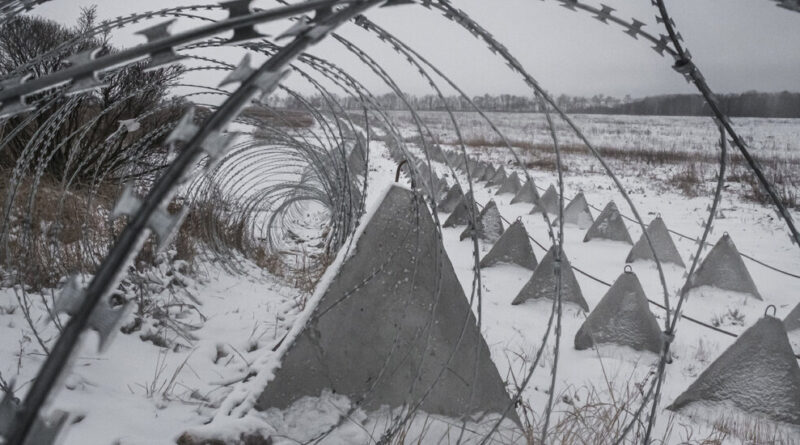Hegseth Says Return to Ukraine’s Prewar Borders Is ‘Unrealistic’
A return to Ukraine’s pre-2014 borders is “an unrealistic objective” and an “illusionary goal” in the peace settlement between Ukraine and Russia that President Trump wants to accomplish, the U.S. Defense Secretary, Pete Hegseth, said on Wednesday at a NATO meeting in Brussels.
In his first meeting with NATO and Ukrainian defense ministers, Mr. Hegseth told them that Mr. Trump “intends to end this war by diplomacy and bringing both Russia and Ukraine to the table.”
But for Ukraine to try to regain all of the territory Russia has seized since 2014, as it insists it must do, “will only prolong the war and cause more suffering,” Mr. Hegseth said.
“We will only end this devastating war and establish a durable peace by coupling allied strength with a realistic assessment of the battlefield,” he said.
Mr. Hegseth also told the meeting that Mr. Trump expected Europe to bear more financial and military responsibility for Ukraine’s defense.
Europe, he said, must take more responsibility for its conventional defense and spend more money on its armed forces, up to 5 percent of national output, as the United States deals with its own security risks and the challenge of China.
Mr. Trump, he added, does not support Ukraine’s membership in NATO as part of a realistic peace plan.
After a settlement, “a durable peace for Ukraine must include robust security guarantees to ensure that the war will not begin again,” but that would be the responsibility, he said, of European and non-European troops in a “non-NATO mission” unprotected by NATO’s Article Five commitment to collective defense.
No American troops will be deployed to Ukraine, he said, and Europe should provide “the overwhelming share of future lethal and nonlethal aid to Ukraine.”
European and alliance leaders have been anxiously waiting to hear what Mr. Trump’s goals for a Ukraine settlement might be. Mr. Hegseth’s comments, at the opening of a large grouping of nations that support Ukraine, will not come as a great surprise. But they mark a major change from former President Biden’s policy that it was up to Ukraine to decide whether to make concessions in exchange for peace — which so far has meant preserving Ukrainian sovereignty within its internationally recognized borders, and supporting Kyiv in its effort to drive Russian forces out of all prewar Ukrainian territory.
NATO has promised that Ukraine will one day become a member of NATO, but without specifying a date. Mr. Hegseth’s comments would appear to put that date very far into the unforeseeable future, if it arrives at all.
His remarks will create political difficulties for President Volodymyr Zelensky of Ukraine and are likely to please President Vladimir V. Putin of Russia, who since 2014, and especially with his all-out invasion three years ago, has occupied about 20 percent of the country.
Mr. Putin has demanded that Russia keep its occupied territories, that Ukraine not join NATO, that its military capacity be limited and that NATO enlargement should halt. He has said he is willing to join negotiations on a settlement with Ukraine, but only on his terms.
To help bring Mr. Putin to the negotiating table, Mr. Hegseth urged lower energy prices, “coupled with more effective enforcement of energy sanctions.”
The United States “remains committed to the NATO alliance and to the defense partnership with Europe, full stop, but the United States will no longer tolerate an imbalanced relationship which encourages dependency,” Mr. Hegseth said.
So Europe must step up to take responsibility for its own conventional defense, he said, while implying that the American nuclear umbrella that helps protect NATO and Europe would remain in place.
He urged Europeans to keep their commitments on military spending and increase them. “We challenge your countries and your citizens to double down and recommit yourselves not only to Ukraine’s immediate security needs, but to Europe’s long term defense and deterrence goals,” he said.
Mr. Hegseth took no questions.

